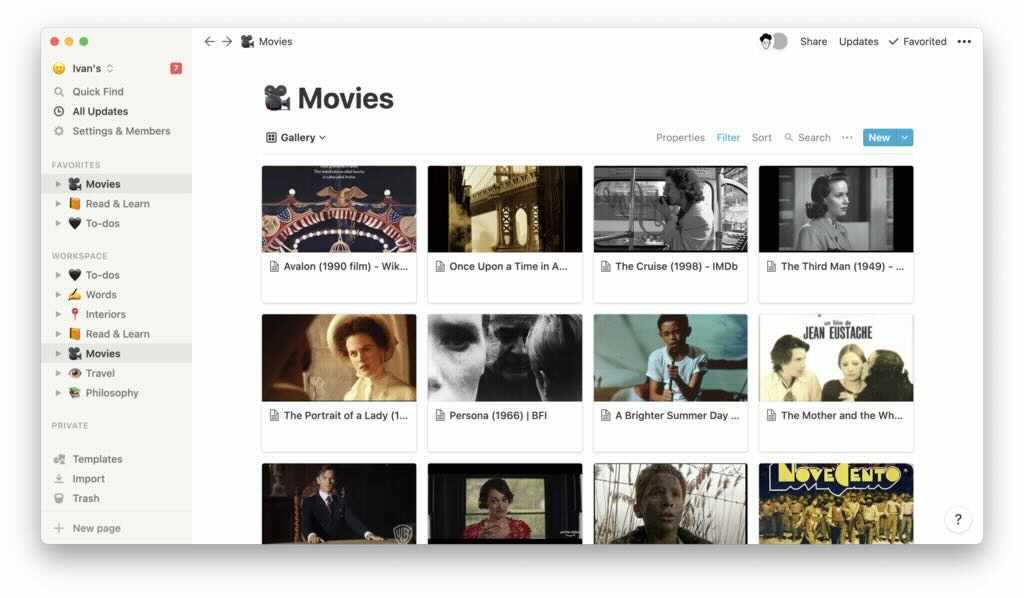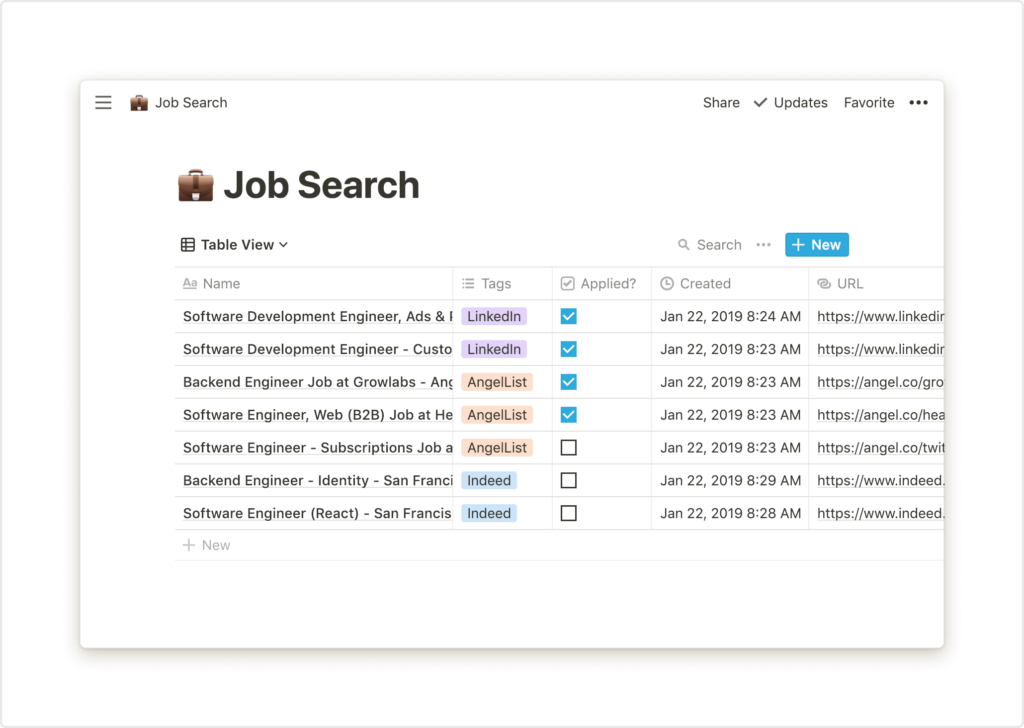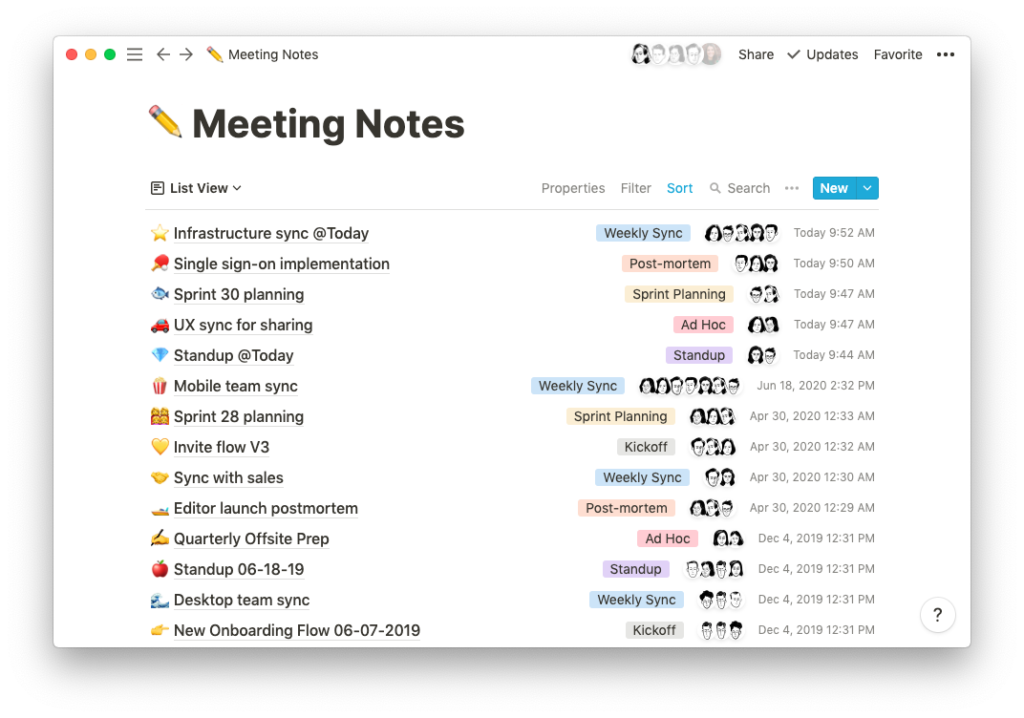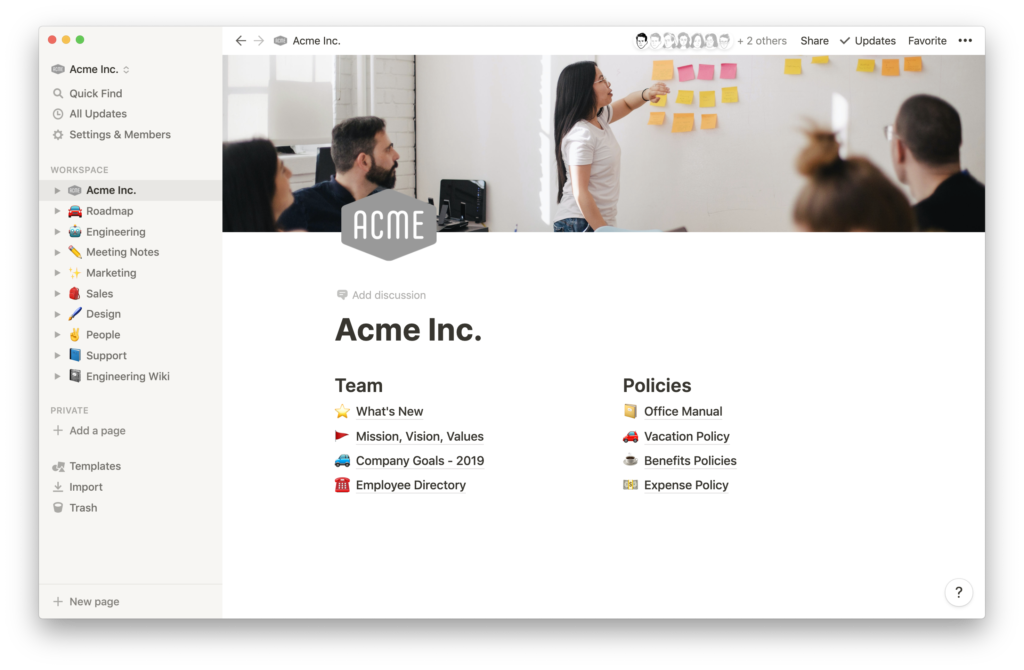When it comes to note-taking apps and productivity tools, a major complaint people have is the sheer number of options and how complex our systems can quickly become. Enter Notion, one tool for notes, docs, projects, and wikis that’s completely customizable—for you, your team, or your whole company. From roadmaps to content calendars and meeting notes, Notion offers the flexibility many have been craving for.
Notion’s popularity is proof it’s doing a good job at tackling this mission: in 2020, Notion reached 4 million users. And the company hasn’t stopped innovating, with backlinks, dark mode, easy ways to import content from other tools, a new API, and more.
Ivan Zhao is the co-founder of Notion. In this interview, we talked about the early days of building Notion and creating a community of passionate users, how he uses Notion in his personal life, the influence of Alan Kay and Douglas Engelbart on Notion’s design, and much more. Enjoy the read!
Hi Ivan, thank you so much for agreeing to this interview. First, can you share what the ethos of Notion is — how is Notion different from traditional tools?
Hi Anne-Laure, thanks for having me. Most software these days are like toasters. They do one thing well. My co-founder Simon and I wanted to do something different with Notion. Instead of building another specialized tool, we wanted to build a set of LEGO-style software blocks — pages, databases, bulleted lists, embeds — that would let anyone in the world build their own tools to solve any problem they have. So we envision Notion as an all-in-one tool that lets you build any workflow and customize it to how you or your team actually wants to work. And as the product evolves and becomes more powerful, it should always be simple and easy to use.
That’s such a unique approach. Something else you have done differently is the way you built an incredibly passionate community of Notion users, including the “Notion Ambassadors” program. How did you turn users into community members? What did that look like in the early days?
We owe so much to our community. It’s our not-so-secret weapon and our biggest strength. The one thing we did right was never taking the community for granted. In the early days, I spent a lot of time replying one-on-one to users on Twitter, making sure they knew there was a human behind Notion. We also logged every piece of feedback we got and tagged it so we could use it to develop features.
About two years ago, we reached out to our biggest power users who were building amazing things on Notion in ways we never imagined, so we could develop closer working relationships and support them as much as possible. Even now, we’re just trying to enable them in the background and help them do more of what they’re doing. That includes giving them a platform to showcase their work, opening a channel for them to give us direct feedback, and helping them meet other community members.
Now many of them run their own huge communities around the world, which has extended our reach far beyond what we’d be able to do ourselves. One of our ambassadors, for instance, runs our subreddit with nearly 100,000 subscribers. Another runs our Facebook Group in Korea with over 20,000 folks. Another has an Arabic community with over 30,000 folks in it. By staying in close touch with the people behind the scenes running these huge communities, people feel informed, close to us, and able to share.
The trickle down effect of your early work is amazing, and it’s great to see users are helping each other. Back to the tool itself… Notion is such a powerful tool, people sometimes feel a bit overwhelmed when getting started. How would you recommend a new user approach their very first steps when using Notion? Any first steps you think are likely to make things click for them?
Find something small you’ve been wanting to get down out of your head or organize, whether it’s a project you want to plan, your apartment search, meeting notes, your grocery list, etc.
Another tip is to start with a template — there’s one for every kind of person or team — and they are right in the product. You can also watch our videos on Youtube or read our guides on the website, which are all geared towards helping you build something step by step. I really like the LEGO analogy; if Notion is like a bunch of LEGOs, then these resources are like LEGO kits that teach you how to build a castle, spaceship, or a project management system.
Invite your co-worker, or friend, or partner to use it with you. That’s when a lot of Notion’s value becomes clear. You can start doing things like commenting on each other’s work, sharing things, and collaborating in the same page. Then gradually add more and more projects to your workspace.
There are so many people managing their entire personal lives and professional lives in Notion, but all of them started out with just one project or one page and gradually built it up. There’s no pressure to make things complicated. Use Notion in whatever way helps you make progress, be more creative, and get more clarity of mind.
Are there any surprising use cases you’ve noticed from Notion users, which you didn’t expect at all?
There are so many. People are managing their Dungeons & Dragons campaigns on Notion, building websites and resumes, and tracking their houseplants.
Then there’s the teams who are spending every workday in Notion planning roadmaps and running meetings. One exciting trend I’ve noticed recently is more and more startups raising VC rounds with Notion pitch decks instead of slides. A lot of companies use Notion to take notes, share docs, host their wiki, and manage projects all in the same space — it becomes a type of operating system for them.
Such a wide range of use cases — living up to the promise of the all-in-one workspace! Now, let’s talk a little bit about you. Do you use Notion in your personal life?
I have a database of the philosophers I’m studying, and one for wine and sake. My girlfriend and I share an interior design database to decorate our apartment, and we log the movies we watch together. I try to keep it simple — Every day, I create a toggle to list my to-do’s and also write down anything I learned or want to remember.

Some great movies in there! Talking about inspiration, Notion’s mission statement quotes computing pioneer Alan Kay: “The best way to predict the future is to invent it.” What kind of future do you want to invent?
I’m glad you mentioned Alan Kay, because Notion is built on his and many other computing pioneers’ ideas — like Douglas Engelbart. He’s pretty much Notion’s patron saint. They envisioned a future where the computing medium could be shaped to solve any problem. That fascinates me.
Humans are toolmakers by nature, yet very few of us have the skills or knowledge to modify the software tools that we use every day. We want to change this status quo. If Notion can help anyone build their own tools to solve their problems, then we will have done our jobs. Imagine if people had the freedom to work exactly the way their brains work, rather than having to conform to rigid software that dictates how you’re supposed to use it. That’s the romantic vision that keeps me excited every day. And it’s also how we get to a place where we can tackle the world’s biggest problems better, together.
Thank you so much, Ivan! Where can people learn more about Notion?
We’re very active on social media (Twitter, Instagram, Linkedin) and try to keep our community in the loop whenever we have updates.We also have a lot of resources to help you explore Notion and give you more concrete examples of what you can build. I’d check out our step-by-step guides, blog, customer stories, and Youtube channel. You can also just search “Notion” on Youtube and watch some of the top videos. Seeing what fellow “Notinos” are doing is by far the most inspiring ?



